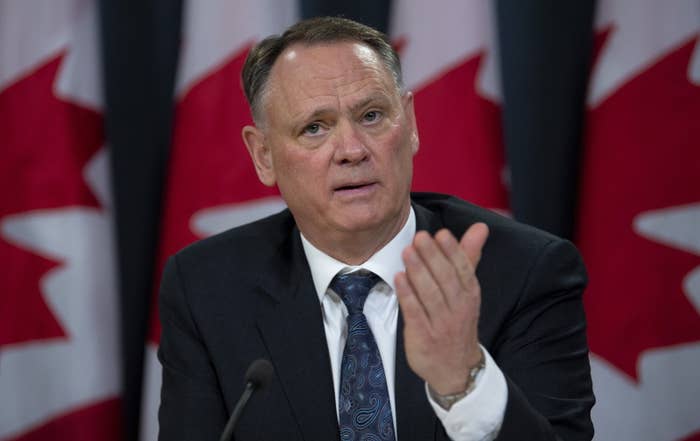
OTTAWA — Canada’s national security and intelligence committee has launched an investigation into foreign interference and espionage in Canada and intends to release the results before this fall’s federal election.
The cross-party National Security and Intelligence Committee of Parliamentarians (NSICOP) has also identified Russia, China, and a “handful” of other countries as running influence campaigns on Canadian soil, and revealed it’s already studying the federal government’s efforts to counter that espionage.
The investigation aims “to shed light on the breadth and the scope of the threat. We’re going to outline the primary threat actors; we’re going to be examining the threat those actors pose to our institutions, and, to a certain extent, our ethnocultural communities,” David McGuinty, the chair of NSICOP, told a news conference in Ottawa on Tuesday.
“We’re working feverishly to get it done.”
McGuinty said the committee is not primarily investigating threats posed by foreign actors on the upcoming election. Canada’s electronic spy agency, the Communications Security Establishment, said Monday that it was “very likely” hostile nations will attempt to interfere in this October’s election.
The Star and BuzzFeed News reported Monday that Canadian intelligence officials are already aware of at least one state-sponsored hacking campaign against a federal political party.
What’s not clear is which state is behind that campaign.
NSICOP’s first annual report, which was tabled in Parliament on Tuesday, alleges that Russia “has repeatedly sent intelligence agents to Canada to establish false identities and conduct espionage.”
It also said China “is known globally for its efforts to influence Chinese communities and the politics of other countries.
“The Chinese government has a number of official organizations that try to influence Chinese communities and politicians to adopt pro-China positions, most prominently the United Front Work Department,” the report said.
Requests for comment to the Chinese and Russian embassies in Ottawa were not immediately returned Tuesday afternoon.
Rennie Marcoux, the NSICOP executive director, declined to name the other countries that intelligence officials believe are spying in Canada.
Marcoux said the committee was comfortable naming China and Russia because the Canadian government has publicly called out the two countries in the past for spying or cyberattacks.
But while the exact number of countries spying in Canada is not publicly known, the Canadian Security Intelligence Service believes the problem is getting worse. The spy agency told the committee that countering the threat will require “a more significant response in the years ahead.”
“Canada’s experience and that of our closest allies over the past several years shows that some states are taking increasingly aggressive measures to influence our political processes and institutions, behaviour which poses a threat to our democratic values and security,” the report noted.
“As a pluralistic state composed of immigrant communities, Canada is not immune from these threats and must be particularly vigilant against efforts by foreign states to threaten or manipulate those communities for their own purposes.”
BuzzFeed News and the Toronto Star are investigating the ways in which political parties, third-party pressure groups, foreign powers, and individuals are influencing Canada’s political debate in the run-up to this fall’s federal election. This report was published as part of that collaboration.



